KTC Thailand Better Enables Employees and Automates Customer Service

KTC (Krungthai Card) is one of the largest and best-known credit card providers in Thailand, managing over 3.3 million credit card and personal loan accounts, and holding a market cap of approximately $5B USD.
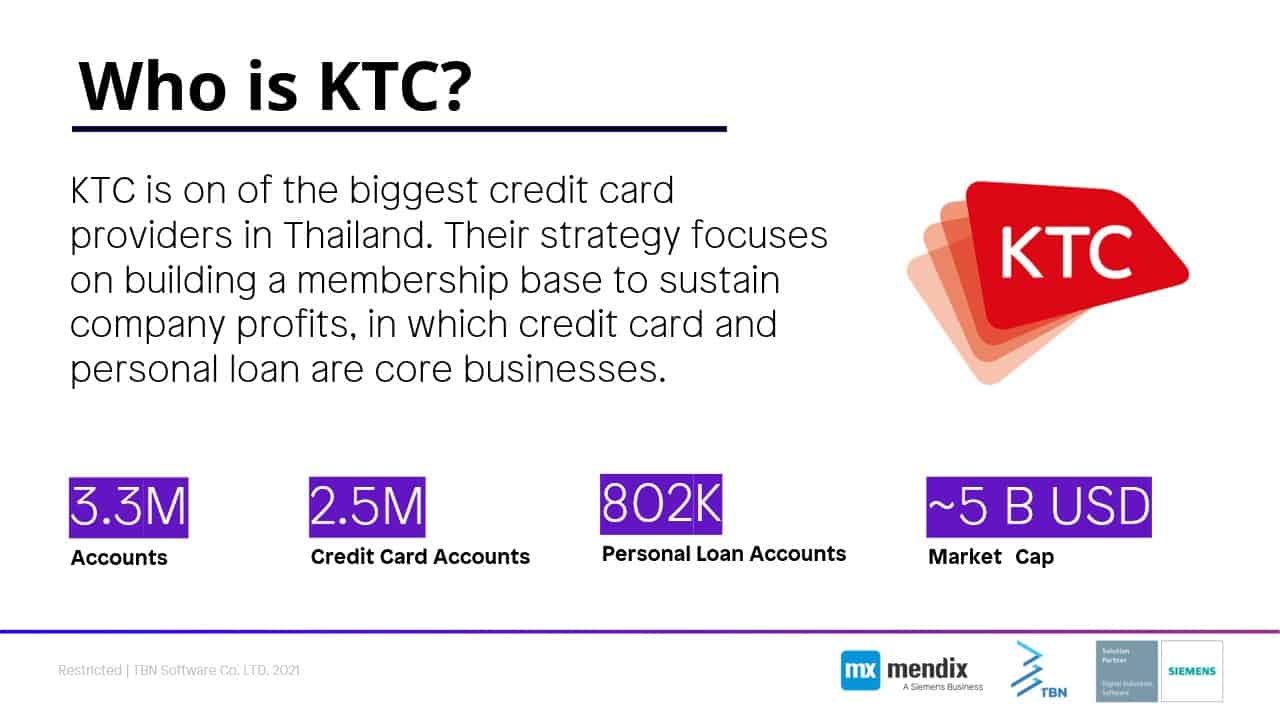
Their mission centers around understanding the needs of their customers and building the best possible customer experience. At the center of upholding that promise is their Contact Center, where customers can call with issues, request credit increases, or discuss other options. Coinciding with an AS400 core system migration, KTC recently faced an issue where their contact center workflows were inefficient, siloed, and made life more difficult for both KTC employees and customers.
Panayu Sirikrachangsri, CEO of TBN Software, a Thailand-based Mendix partner, presented at Mendix World 2021 about how low-code helped KTC to completely streamline and automate their customer service operations.

Strengthening the core
KTC’s Contact Center has over 450 active users, is available 24/7, handles an average of 20,000 calls, and manages between 9,000 and 10,000 new cases per day. As Sirikrachangri described, “This is one of the most sophisticated and very challenging use cases that our company has done.”
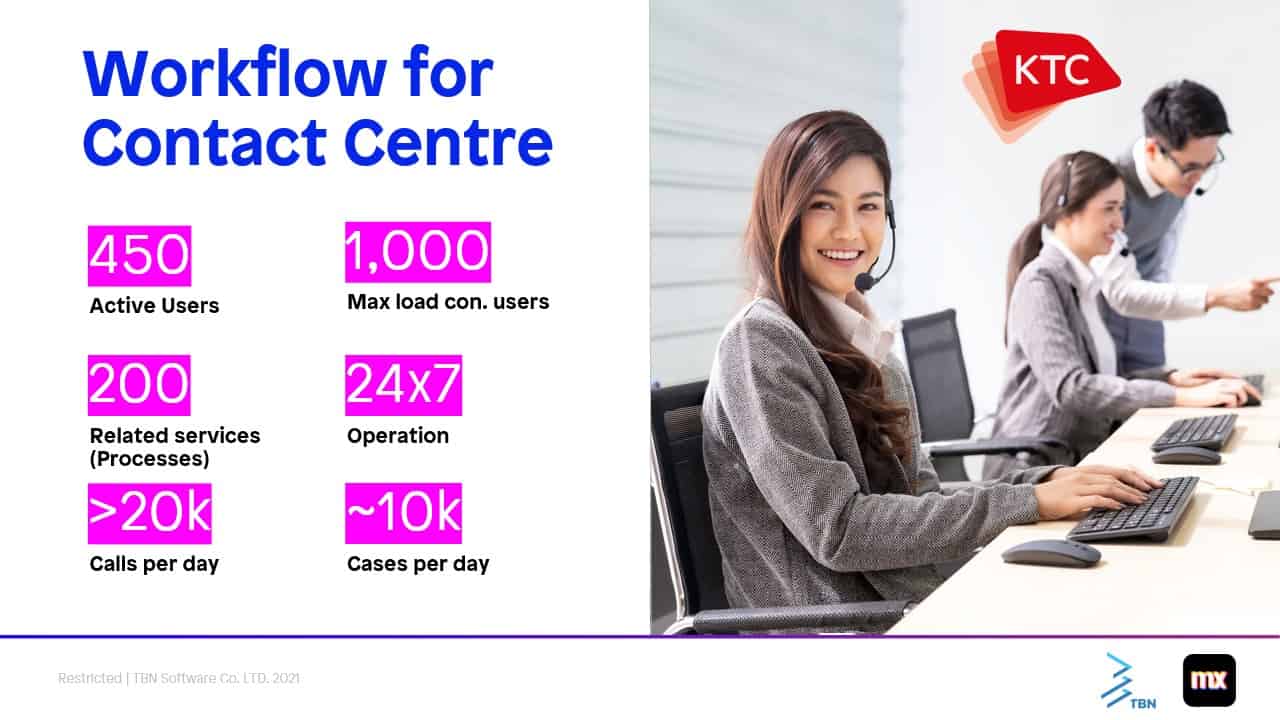
KTC implemented a new AS400 Core Credit Card system in 2015, which led them to identify several key issues with their existing Contact Center. This core system contained a wealth of customer and account information, but much of this information would not make its way into the Contact Center, so agents would have to go screen to screen to find information, then process these cases using paper.
The lack of readily accessible data, and subsequent searching and manual processing led to long handling times and dissatisfied customers. In addition, this complexity led to an increase in training costs and onboarding time. Because customer service tends to have significant employee turnover, this provided an extra challenge.
KTC required a solution that could seamlessly integrate with the new core system as well as additional internal systems. “The handling time needs to be efficient and short, so they also expect that system to be very responsive,” Sirikrachangri said. “The data should come right away. The screen rendering, everything should be fast.” In addition, because their services are available 24/7, uptime, speed, and performance were crucial components.
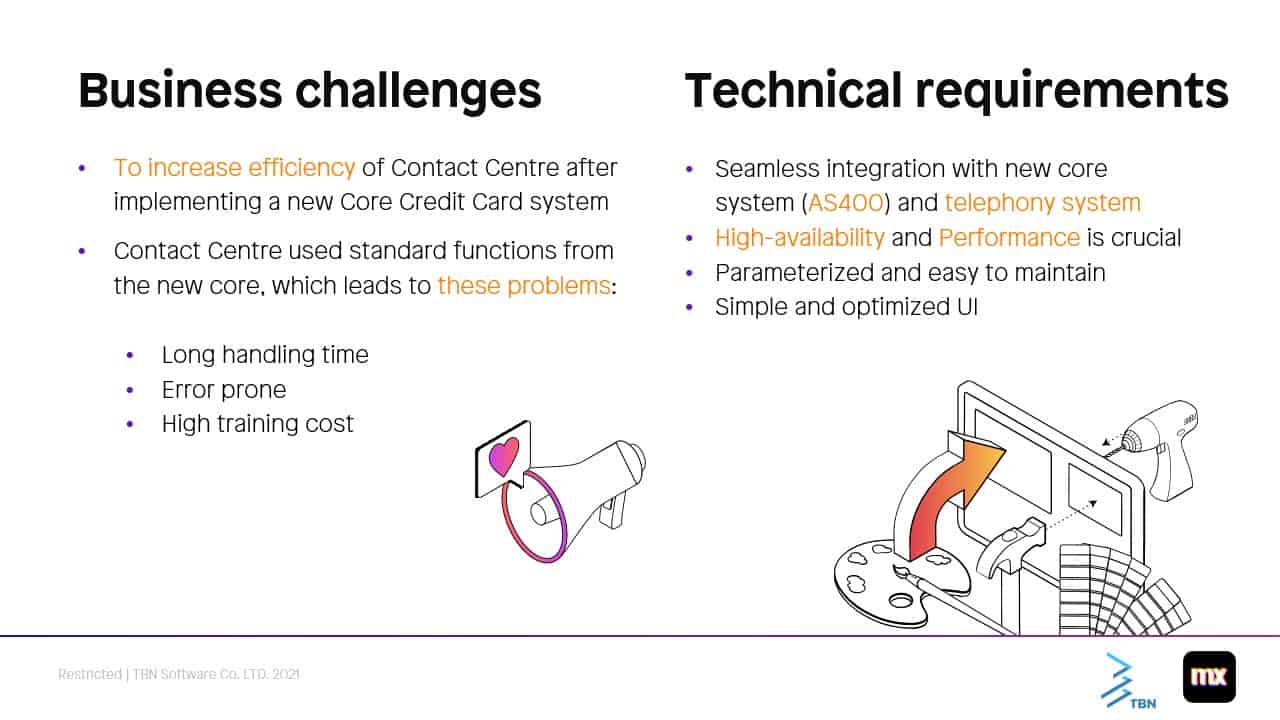
KTC also operates in a heavily-regulated industry, where laws can change in an instant. With that in mind, KTC needed a solution flexible enough to accommodate those changes without requiring constant rewrites of thousands of lines of code. Because of that need for speed and flexibility, KTC found their way to low-code, Mendix, and TBN Software.
From function to process
TBN worked with KTC to understand their processes, and then help outline solutions. In one case study from the existing system, if a KTC customer called about a financial adjustment, the KTC agent would have to “open four menus, four screens and have to submit the case two times for approval.” This workflow was driven by function, rather than what KTC agents knew to be the best way to process the request.
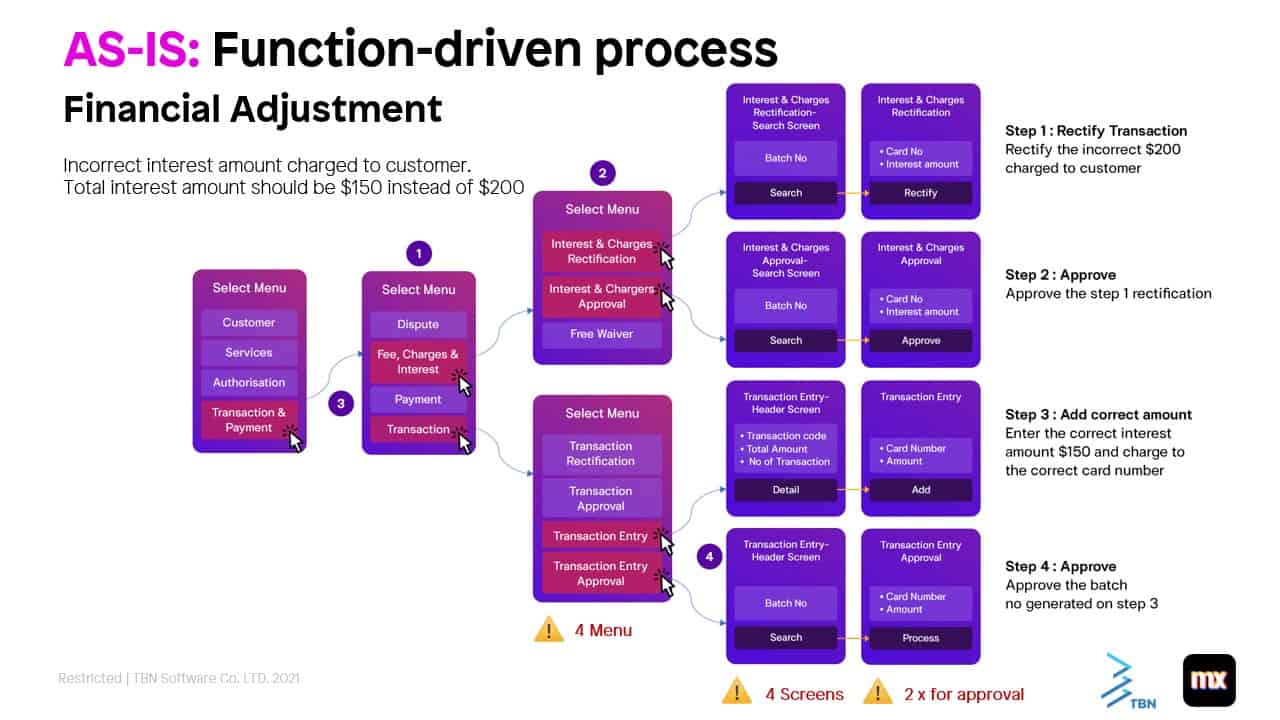
The goal for KTC then became to combine the disparate menus, screens and approval processes into one page. As Sirikrachangri described, “this way, it is much faster and more efficient. And, also in term of usability, we also remove all irrelevant information…[and] just focus based on the context that the agent is using.” By focusing on the process, identifying spots to simplify the workflow became clear.
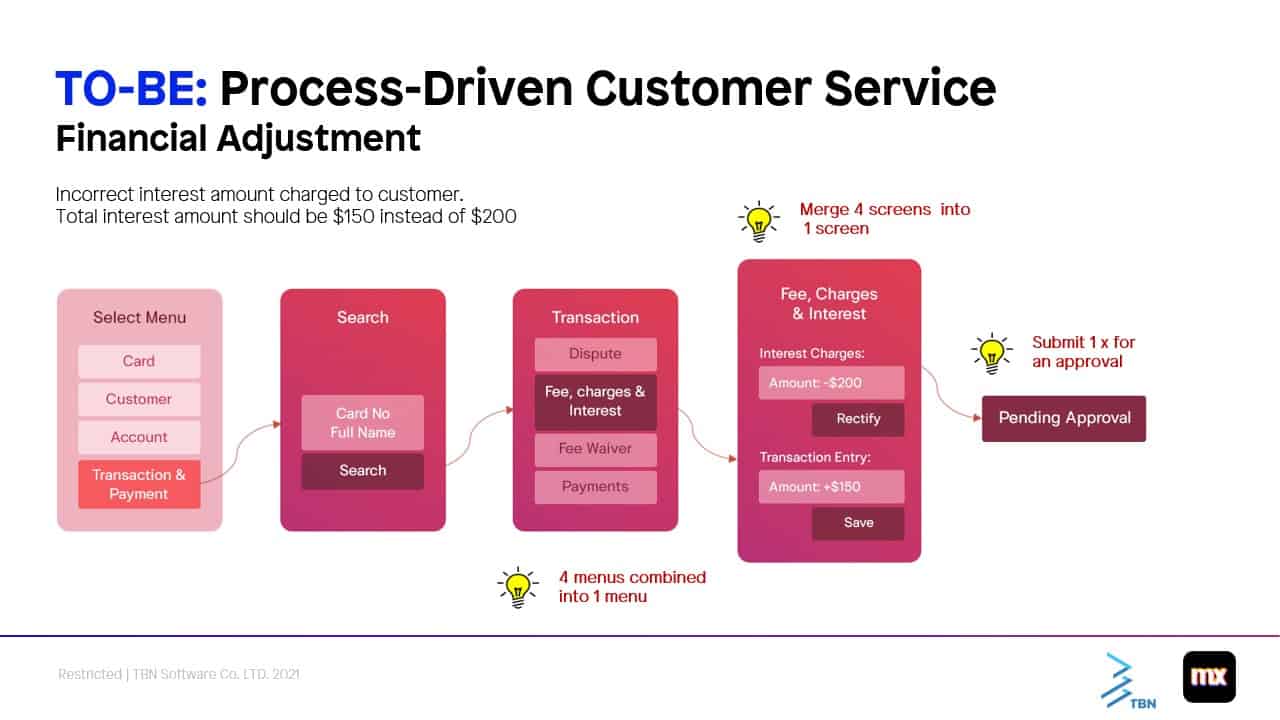
Low-code page design simplifies UX
The team at TBN was able to accomplish this using a page design made of three panes (components). The first pane contains information about any given case like creation date, issue, and status.
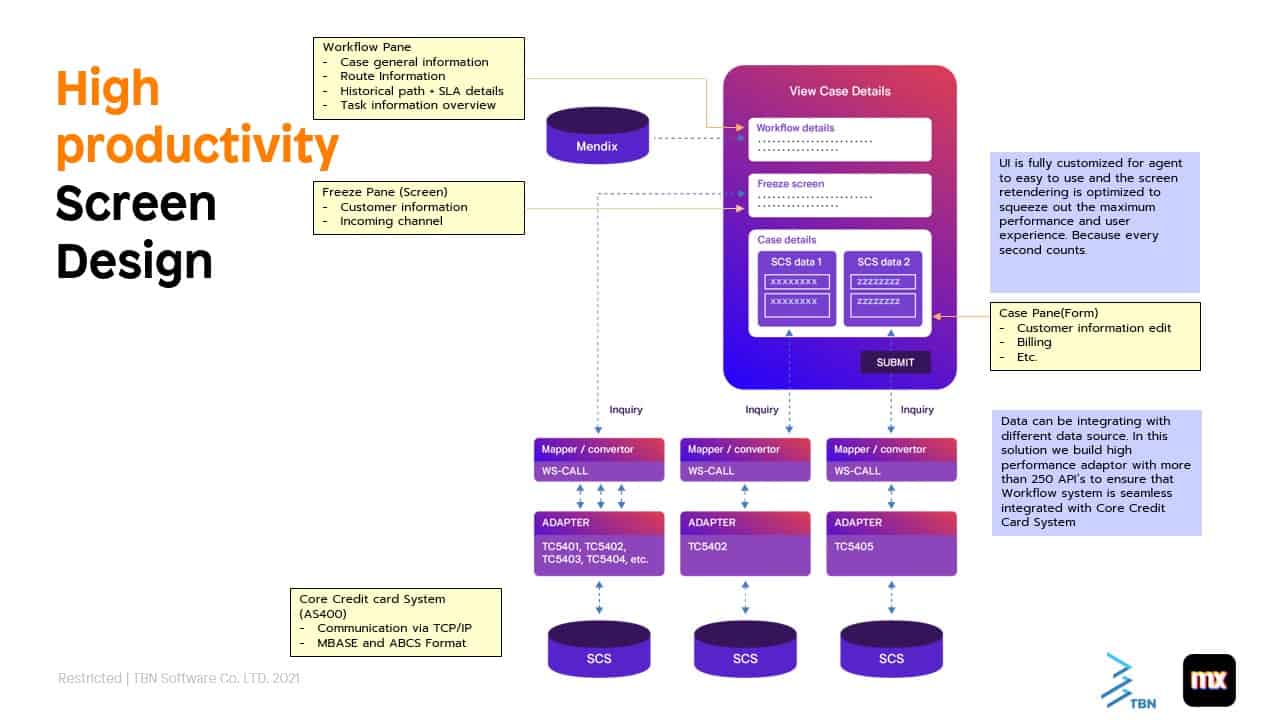
The second pane is called a freeze pane, which contains all customer information, giving the agent a full 360-degree view of the customer’s history with KTC. That pane can be collapsed and opened as needed.
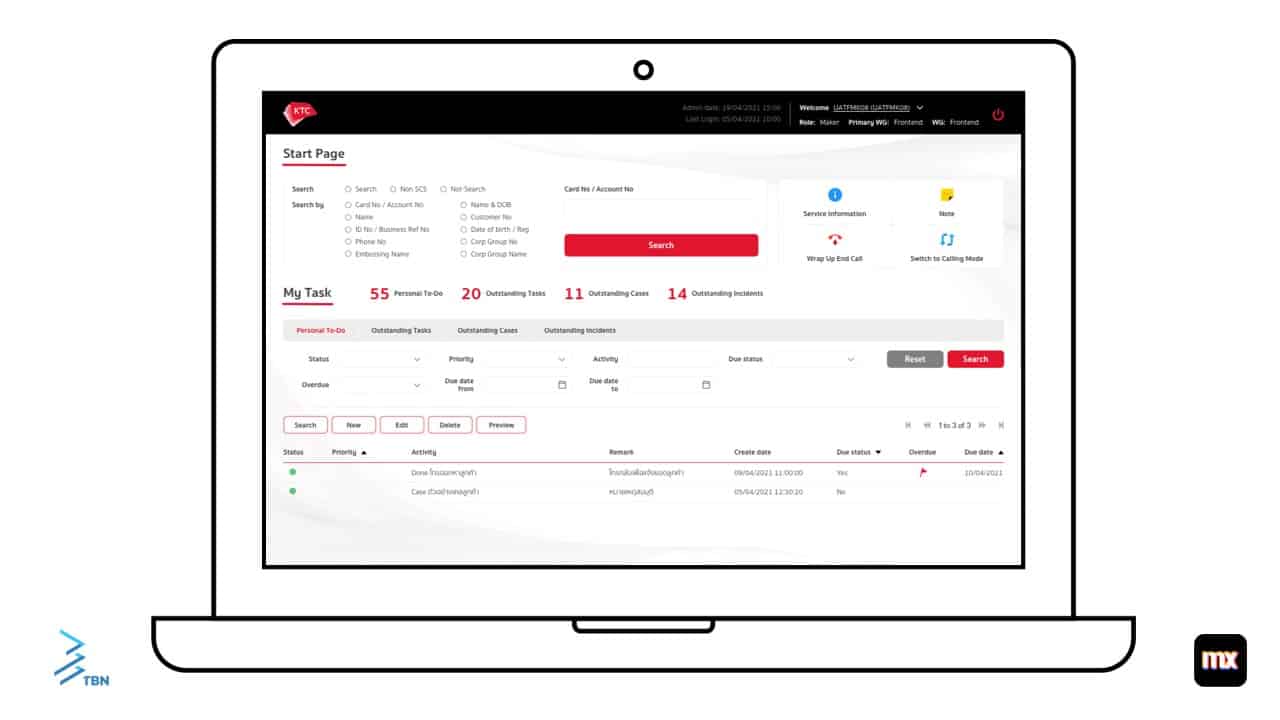
This customer information comes from KTC’s AS400 system through an adapter built with Mendix. Adapters “ensure you can scale the adapters independently, apart from the app layer,” relayed Sirikrachangri. “We communicate through the TCP/IP…based on in-base or episode format. So, on the other side we transform into the web service protocol, which allow workflow applications to connect the adapter easily.” Through these adapters and 250 custom-built APIs, TBN can ensure that information will flow back and forth from KTC’s core system to their Contact Center quickly, reliably, and accurately.
The final pane is a dynamic case pane. This pane is rendered based on the automated workflow process. If a customer is calling to increase their credit limit, the agent can enter that detail and the case pane will populate with the relevant forms and subsequent processes.
Better end-user experiences
KTC’s new Contact Center has now been running for approximately five years. Productivity and transparency have gone up and human error and training cost/time have gone down, leading to a greater than 30% reduction in time-to-productivity for service representatives. In addition, KTC management now has access to real-time data which helps support strategic decision making. Since this first Mendix implementation, TBN has partnered with KTC to deliver several other mission-critical systems.
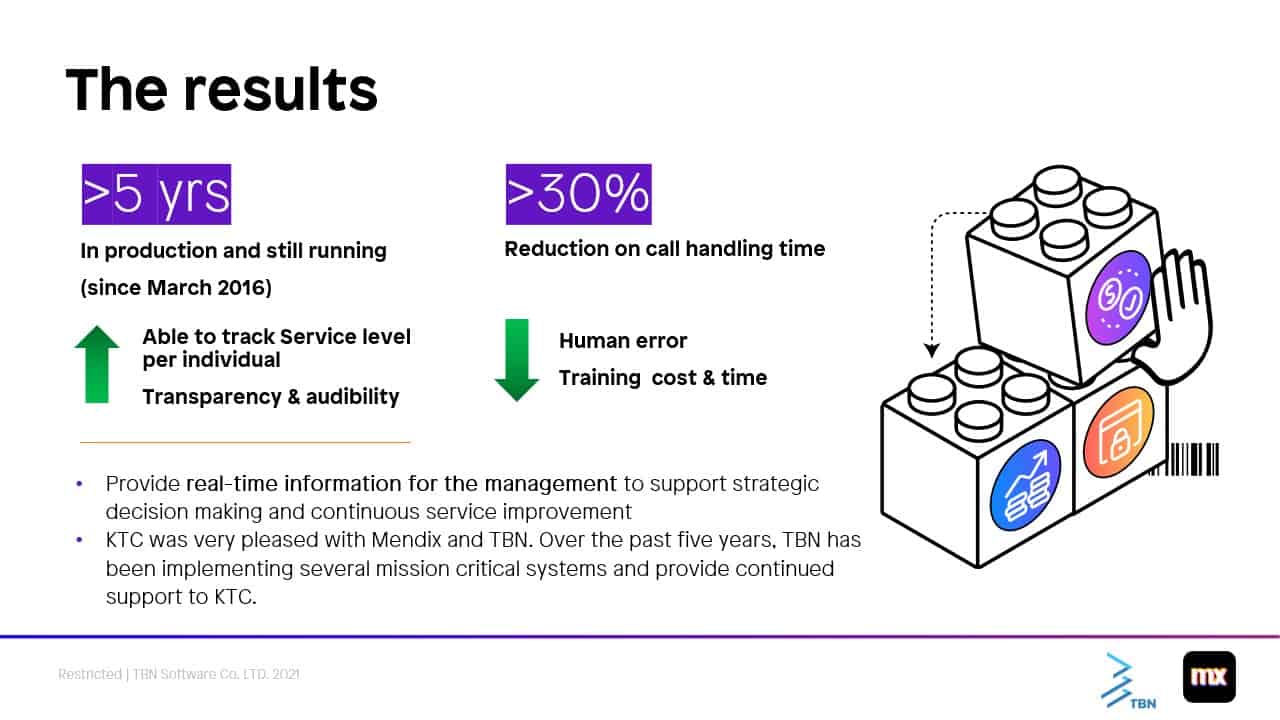
When identifying a need for change within their Contact Center, KTC started a journey that would benefit both their internal and external end-users. Their work with low-code automation has allowed them to transform not just their service-related customer experience, but also improve productivity for their employees. “KTC was very pleased with the result because this system really helped a lot, both on the customer experience and also the internal operation process,” Sirikrachangri noted. “This success would not have been possible without the Mendix low-code platform and we are looking forward to the new challenges together.”